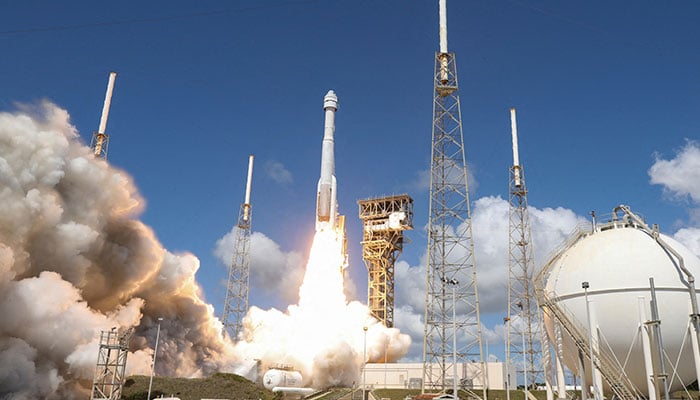Flawed Boeing mission to return to Earth with SpaceX next year: Nasa
Return of two US astronauts has been delayed by thruster malfunctions of the Boeing spacecraft
HOUSTON: Two US astronauts who arrived at the International Space Station aboard Boeing's Starliner will have to return home with rival SpaceX, Nasa said on Saturday.
"Nasa has decided that Butch and Suni will return with Crew-9 next February, and that Starliner will return uncrewed," Nasa administrator Bill Nelson told reporters.
The return of Barry "Butch" Wilmore and Sunita "Suni" Williams has been delayed by thruster malfunctions of the Boeing spacecraft.
The decision marked a fresh public relations headache for Boeing, meaning the two astronauts will have to spend a total of eight months in orbit, not the eight days as originally planned.
After years of Starliner development delays, the spacecraft had finally lifted off in early June carrying veteran astronauts Wilmore and Williams to the ISS.
But while studying problems with the craft's propulsion system, Nasa had to put their return on indefinite hold.
Engineers at Boeing and Nasa were concerned Starliner might not have the propulsive power to wrest itself out of orbit and begin the descent toward Earth.
Nasa officials said on Saturday they had opted for the highly unusual option of bringing the astronauts back from the flying laboratory not on their own craft, but aboard a previously scheduled SpaceX vehicle in February.
Under the new plan, the SpaceX Crew-9 mission will take off in late September, but carrying only two passengers instead of the originally planned four.
It will remain moored to the ISS until its scheduled return in February, bringing back its own crew members plus their two stranded colleagues.
-
Scientists discover rare form of 'magnets' that might surprise you
-
Humans may have 33 senses, not 5: New study challenges long-held science
-
Northern Lights: Calm conditions persist amid low space weather activity
-
SpaceX pivots from Mars plans to prioritize 2027 Moon landing
-
Dutch seismologist hints at 'surprise’ quake in coming days
-
SpaceX cleared for NASA Crew-12 launch after Falcon 9 review
-
Is dark matter real? New theory proposes it could be gravity behaving strangely
-
Shanghai Fusion ‘Artificial Sun’ achieves groundbreaking results with plasma control record












